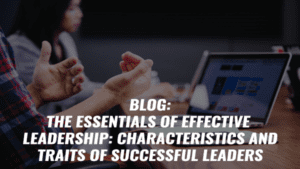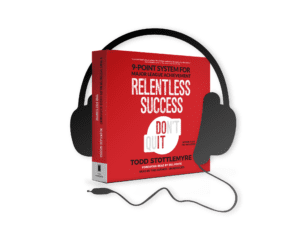Introduction
Failure is something we all experience in our lives, from the smallest of mistakes to the most epic failures. Some of us treat failure like a personal attack on our abilities; others see it as a stepping stone to greatness. This article will teach you how to reframe failure and embrace it as a learning opportunity instead of something that holds you back from achieving your goals.
Shift your mindset about failure.
The first step to reframing failure is to recognize that failure is an opportunity to learn and grow. When you fail, it’s not the end of the world–it’s just a part of life. You may feel disappointed or sad at first, but once you’ve recovered from your initial reaction and processed what happened, try looking back on it with curiosity: what did I learn from this experience? How could I have done things differently? What’s one thing I would do differently next time (if there even is a next time)?
If you’re struggling with this kind of thinking right now–if nothing seems worth trying because there are so many ways for things not to work out–that’s okay too! Take some time away from thinking about your goal until later when your mind has calmed down and become more focused again on what matters most in life: living well and doing good work every day.
Adapt to change.
Change is inevitable. You can’t stop change from happening, so instead of fighting against it, embrace it. When you adapt to the changing environment around you, failure won’t hold you back from achieving your goals. Instead of seeing failure as something bad that happened because someone else was in charge of your life instead of yourself and made mistakes (which is an easy way to blame other people), look at what happened as an opportunity for growth and improvement.
Find your purpose.
Finding a purpose is the first step to overcoming fear of failure. If you don’t know why you are doing something, it’s likely that at some point along your journey, you will lose motivation and give up before reaching your goal.
Finding a purpose can help you learn how to embrace failure as a learning opportunity rather than seeing it as something negative or shameful.
Finding a purpose may also help us become more resilient by giving us something bigger than ourselves that we believe in and want others around us to believe in too!
Seek out challenging opportunities.
- Seek out challenging opportunities.
- Take on challenges that are hard to do.
- Challenge yourself and push your boundaries!
See failure as an opportunity for growth.
Failure is a great opportunity for growth. When you fail, it’s natural to feel demeaning–but that’s not the end of the world! Here are some things you can do:
- See failure as an opportunity for learning. If you failed at something, that means there was something wrong with your approach or execution of it–so next time around when you attempt this same goal or project (or something similar), try approaching it differently. You might find that doing so helps avoid repeating past mistakes and leads to better results!
- Understand what went wrong so that next time around will be different from now on. This is especially important when dealing with problems like chronic illness or emotional issues such as depression; while these things may never go away completely, understanding how they affect our lives allows us greater control over them rather than letting them dictate our actions without our consent!
Recognize that failure is often the product of circumstance or luck rather than ability.
Sometimes our failure is the result of circumstance or luck, rather than ability.
In one experiment, participants were asked to make a series of decisions about what they would do in various situations. They then had their decisions evaluated by independent observers who were asked to predict whether each participant would succeed or fail based on those choices alone. Their judgments were remarkably accurate: most people who choose poorly are doomed to repeat the same mistakes over and over again; conversely, those who choose wisely tend not to backslide into bad habits once they’ve hit upon an effective strategy for success.
This suggests that there’s something innate about how we learn from our mistakes that makes us less likely than average people at adapting when things go awry–but it also suggests there may be ways around this tendency!
Embrace unstructured time, even if you feel like you’re wasting it.
One of the best ways to get over your fear of failure is to give yourself unstructured time. I know, it sounds like the opposite of what you should do when you’re trying to learn something new. But if we always have a plan and are busy all the time, we don’t allow ourselves the opportunity for reflection and growth that comes from being idle (or at least not doing anything productive).
When we don’t have any structure or deadlines in our lives, we can start thinking more freely about our goals and projects–and whether they’re worth pursuing in the first place. This means taking breaks from work so that when it’s time get back into it again, we’ll be more excited about what needs doing instead of feeling like our brain is running on autopilot all day long because there wasn’t enough downtime between tasks for us to really think about what needs doing next!
Have empathy for others as well as yourself.
Empathy is the ability to understand and share the feelings of another. It’s not sympathy, pity or feeling sorry for someone. Empathy is about understanding the difficulties they are facing, without taking on their burdens yourself.
It’s important that we have empathy for ourselves as well as others because it helps us to understand our own mistakes better when we can see them from another person’s perspective. This is a vital step on your journey towards embracing failure rather than avoiding it at all costs!
Embracing failure and not treating it like a personal attack on your abilities can benefit you in the long run
Failure is a part of life. It’s inevitable, and it can happen at any time. When you fail, you might feel like your failure was due to something that you did wrong or that there was something more that could have been done. However, this isn’t always the case; sometimes failure has nothing to do with what you did or didn’t do–it just happens!
When we think about failure as something personal against us and not just a learning opportunity, it becomes easier for us not only cope but also grow from our experience.
Conclusion
None of this is to say that failure should be treated lightly or without respect. It’s a painful experience, and we all have our own ways of dealing with it. But it pays to remember that failure can be a catalyst for growth–and if we’re able to embrace it as such, there are many benefits to be gained.









